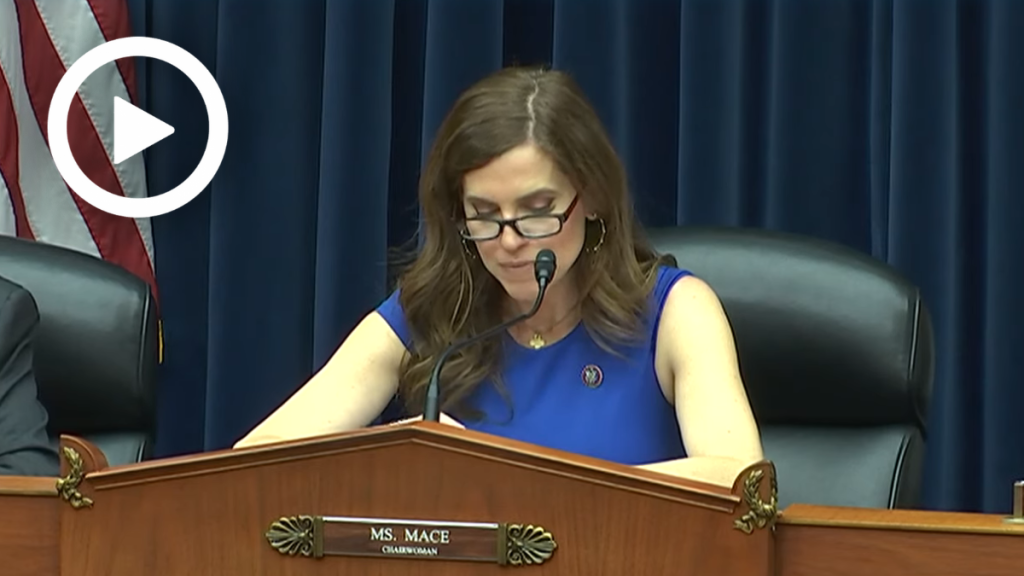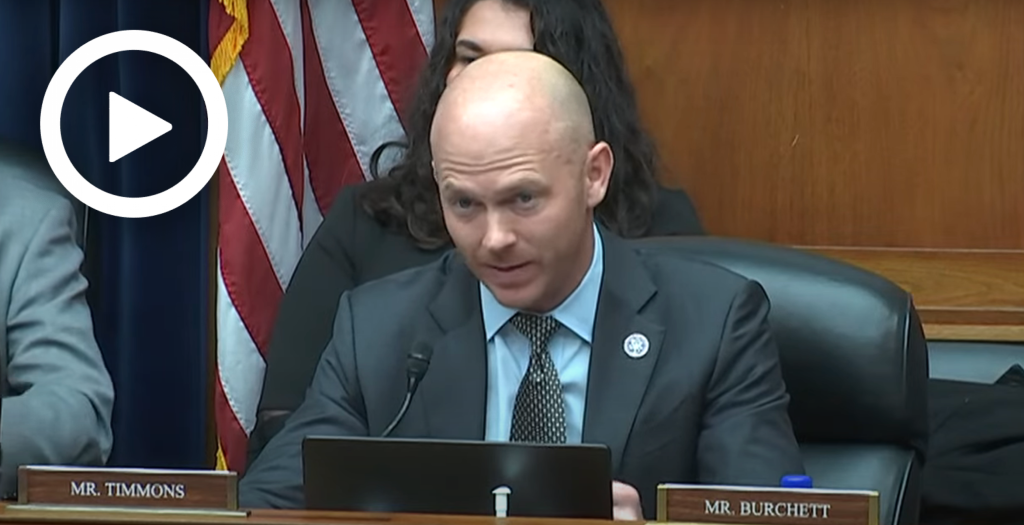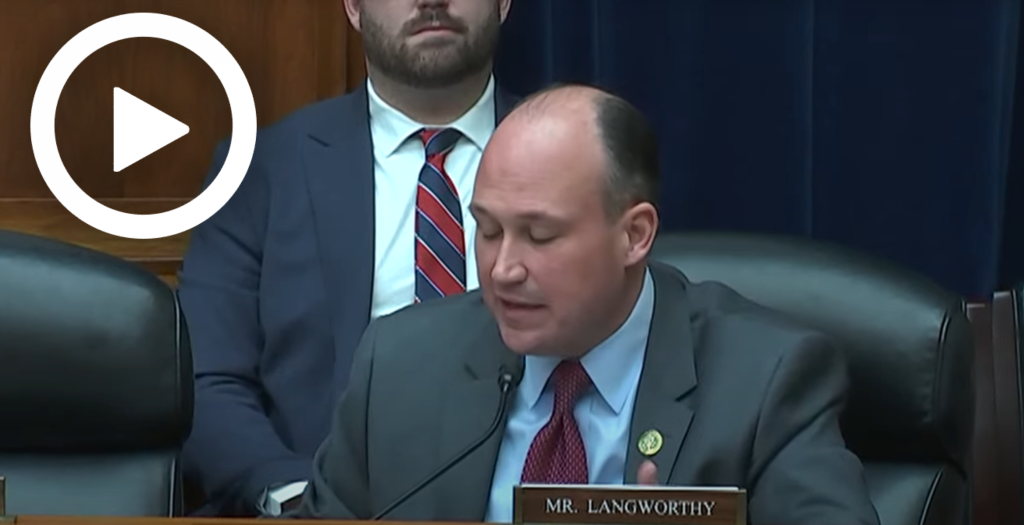Hearing Wrap Up: Developing AI Literacy in the Workforce is Central to U.S. Leadership in AI
WASHINGTON—The Subcommittee on Cybersecurity, Information Technology, and Government Innovation held a hearing titled, “Toward an AI-Ready Workforce.” Members discussed with subject matter experts how to effectively train an AI workforce to ensure economic benefits from AI are broadly distributed.. Members also discussed how to equip public sector workers with AI skills and how the government can apply best practices from private-sector AI learning programs to the federal workforce.
Key Takeaways:
Securing and strengthening America’s lead in artificial intelligence (AI) is key to maintaining national security and economic prosperity. As AI adoption accelerates, that edge will increasingly depend on the global competitiveness of our AI workforce.
- Dr. William L. Scherlis—Professor of Computer Science at Carnegie Mellon University—emphasized the importance of the timing of this hearing topic given the acceleration of AI across industry and society: “The charge to this hearing focuses on developing an AI workforce that enhances American strength and prosperity. This could not come at a more critical time. We see an accelerating pace of innovation in artificial intelligence and also in development of a growing range of applications. We are already seeing transformative impacts on defense and security, and on economic growth and opportunity in many sectors – and these benefits accrue at both national and regional levels, and include the delivery of diverse cost-effective services directly to our citizens.”
Experts anticipate that AI-adoption will also impact the broader workforce by changing or eliminating some jobs while creating new ones. Maintaining the nation’s global leadership in AI will require education and training pathways to train and upskill workers for AI and AI-adjacent roles.
- Ms. Timi Hadra—Client Partner and Senior Executive for West Virginia at IBM—discussed what IBM is doing in the private sector to move toward a more Ai ready workforce: “As an industry leader, we have a responsibility to help prepare the American workforce to capitalize on the benefits of AI. In 2021, IBM unveiled a global commitment3 to help skill 30 million people by 2030. And most recently, we committed to train two million people in AI in the next three years through collaborations with universities and with new generative AI coursework on IBM SkillsBuild4 – our online platform with free coursework for teachers, students, and adult learners. The IBM SkillsBuild platform offers free coursework in AI fundamentals, chatbots, AI ethics, and generative AI. The coursework for generative AI includes Prompt-Writing, Getting Started with Machine Learning, Improving Customer Service with AI, and Generative AI in Action.”
Member Highlights:
Subcommittee on Cybersecurity, Information Technology, and Government Innovation Chairwoman Rep. Nancy Mace (R-S.C.) examined what is holding the federal government back from developing an enhanced AI workforce and ways it can navigate this obstacle.
Rep. Mace: “Why do you think it is so hard for the federal government to or certain agencies to adopt this kind of nimble attitude towards AI?”
Ms. Hadra: “It’s a challenging topic, I think sometimes as some of my fellow panelists have mentioned, we’re not talking across agencies, we’re not talking across industry, and I think it is important for the federal government to look at what industry has done and try to implement the tools that are out there. Like [IBMs] SkillsBuild, like the other platforms that are widely available, and start getting those in use sooner.”
Rep. Mace: “You also mentioned in your testimony that federal contractors are rarely able to place an individual without a four-year degree on a technology services contract regardless of their qualifications. Are you saying that the terms of the federal contracts IBM is asked to sign prohibit the work be done by those without college degrees? Does that inhibit your ability to fill those roles?”
Ms. Hadra: “Yes it is an issue and let me explain: In my experience with federal contracts a lot of times you have labor category descriptions or requirements that say ‘if you have a cybersecurity analyst, these are the minimum qualifications that they must meet.’ In some cases, we have seen change, it’s not that the regulations are not being implemented, it’s just not enough…our cybersecurity apprenticeship program is a 6 month curriculum. Those people don’t have four years of experience, but they are immersed in six months and they’re ready to hit the ground running on those programs. But because they don’t meet that minimum qualification, we are not able to put them on that contract.”
Rep. William Timmons (R-S.C.) discussed how we can prepare and train our existing workforce to be able to integrate the education and tools needed to work in the AI driven future.
Rep. Timmons: “Dr. Scherlis, how do we increase the capacity of our workforce and separate that between the government and the private sector and then how do you develop our capacity long-term to be a leader in this in the global community?”
Dr. Scherlis: “Thank you for that question, I’ll agree that there is some separation but I think the separation is largely, arguable a cultural outcome. In government, it is really important to for us to have strong programs of professional development and advancement for our technology workforce, otherwise people don’t stay current. I think that it may be that many firms in the private sector and certainly in the tech sector, that’s an active element of the employer handshake. But I think what’s going on for example in the Defense Department…the role of leadership and the ability of leadership to think in imaginative ways, to think about what kinds of risks can we safely take, that can bubble down through an organization and effect for example, who’s involved with acquisition, with engineering, with developing strategy, with planning. All those kinds of positions are going to be affected by AI. So if we create an environment where we’re receptive to change, receptive to education and learning, I think that would make a significant difference.”
Rep. Nick Langworthy (R-N.Y.) discussed what processes IBM undertakes to train existing members of the workforce on AI which can be used a model for the federal government.
Rep. Langworthy: “How does IBM approach the process of retraining and upscaling existing employees.?”
Ms. Hadra: “Thank you for that question. Investing in upscaling and rescaling in lifelong learning is in IBMs DNA, and as we usher in new technologies like AI, we must ensure that both our employees and our society more broadly have opportunities to gain these skills. And we do this in real time. We want our employees to remain valuable to our clients, so we employ reskilling and upscaling programs annually.”
CLICK HERE to watch the hearing.


